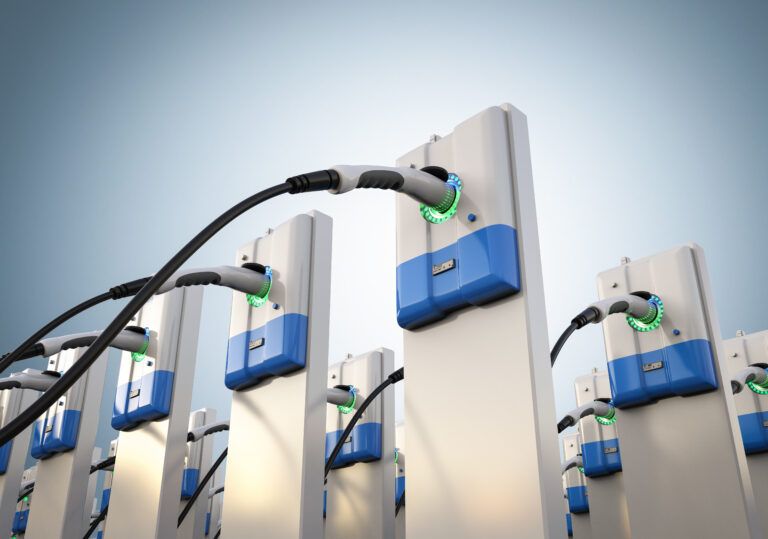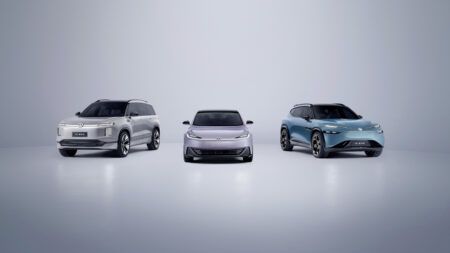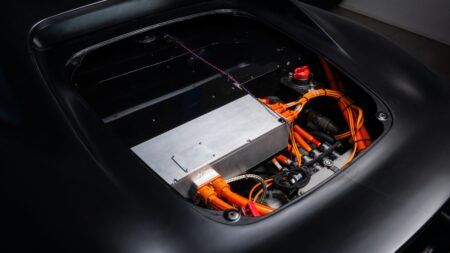Electric vehicle drivers in the UK can all breathe a collective sigh of relief as the country’s EV charging network has been given a huge boost with the government unveiling plans to pump £1.6bn into infrastructure that will see the number of chargepoints increase tenfold by 2030.
Under the Electric Vehicle Infrastructure Strategy, it outlines for 300,000 public chargepoints by the end of the decade, which is almost five times the number of fuel pumps available today.
The government claims charging an EV will become easier and cheaper than refueling a petrol or diesel car, while new legal requirements on operators will see drivers of EVs able to pay by contactless, compare charging prices and find nearby chargepoints via apps.
The new strategy sets out the government’s aim to expand the UK’s charging network, so that it is robust, fair and covers the entire country – as well as improving the consumer experience at all chargepoints, with significant support focused on those without access to off-street parking, and on fast charging for longer journeys.
£500 million will be invested to bring high quality, competitively priced public chargepoints to communities across the UK. This includes a £450 million Local Electric Vehicle Infrastructure (LEVI) fund, which will boost projects such as EV hubs and innovative on-street charging, so those without driveways don’t miss out on cleaner transport.
A pilot scheme for the LEVI fund launching today will see local authorities bid for a share of £10 million in funding, allowing selected areas to work with industry and boost public charging opportunities.
Meanwhile, the LEVI funding includes up to £50 million to fund staff to work on local challenges and public chargepoint planning – ensuring that any development complements all other zero emission forms of travel, such as walking and cycling.
The existing £950 million Rapid Charging Fund will support the rollout of at least 6,000 high powered super-fast chargepoints across England’s motorways by 2035, ensuring the UK continues to lead the Western world in the provision of rapid and ultra-rapid public chargers.
This comes on top of ministers’ pledges to continue addressing any barriers to private sector rollout of chargepoints, such as local councils delaying planning permission and high connection costs.
Ambitious and innovative chargepoint operators are already committed to installing an additional 15,000 rapid chargepoints across England’s entire road network – a quadrupling of the current offer – and over 100,000 on-street chargepoints by 2025.
Prime Minister Boris Johnson said:
“We’re powering ahead with plans to help British people go electric, with our expanding charging network making journeys easier right across the country.
Clean transport isn’t just better for the environment, but is another way we can drive down our dependence on external energy supplies. It will also create new high-skilled jobs for our automotive and energy sectors and ultimately secure more sustainable and affordable motoring for all.”
The landmark news will come as great encouragement for those thinking of buying an electric car in the face of rising fuel costs. Experts within the automotive industry were understandably supportive of the announcement. Here is what some had to say:
Jamie Hamilton, automotive director and head of electric vehicles at Deloitte, said:
“The Electric Vehicle Infrastructure Strategy announced today adds important momentum to the journey towards an all-electric future and race to net zero. The commitment of reaching 300,000 public chargepoints by 2030 will help alleviate anxiety amongst the one in three UK households who don’t have off-street parking, making access to EVs more equitable in the future.
“With car manufacturers and others within the private sector also making significant commitments to electric mobility, this strategy begins to remove some of the constraints to continued future growth.”
Liam Griffin, CEO of Addison Lee said: “We welcome the publication of the Government’s EV infrastructure strategy and its commitment to invest £1.6bn to increase the number of electric chargers to 300,000 by 2030. Since November 2021, Addison Lee has added 450 fully electric vehicles to our London fleet and, to date, it is evident that the number one issue facing drivers is the charging of their vehicles.
“In a recent survey, 65% of Addison Lee partner drivers highlighted availability as the biggest concern when trying to charge their EVs, while 80% spent over 15 minutes trying to locate a rapid charger. And with the majority of London drivers not having access to off-street parking, an affordable and accessible EV charging network is essential to give drivers the confidence to switch to electric ahead of the Government’s 2030 deadline.
“As we continue our transition, it is increasingly clear that the UK as a whole needs greater urgency in the rollout of our EV infrastructure network.”
Paul Willcox, Managing Director, Vauxhall, commented: “The electric vehicles (EVs) sold now not only help to reduce air pollution, and our fossil fuel use, today but they become the used electric vehicles of tomorrow – enabling more of the UK to transition quicker to zero-emissions-in-use motoring.”
Drivers are at the heart of the revolutionary plan, with rigorous new standards and legislation being introduced to improve people’s experience of using public chargepoints.
The government is mandating that operators provide real-time data about chargepoints. It is ensuring that consumers can compare prices and seamlessly pay for their charging using contactless cards. They will also be able to use apps to find their nearest available chargepoint.
These plans will also require a 99% reliability rate at rapid chargepoints to ensure they are world-class and give consumers confidence in finding chargepoints that work wherever they travel – helping eradicate so-called ‘range anxiety’.
Even with recent trends in electricity prices, EVs still benefit from lower fuel, running and maintenance costs than their petrol and diesel equivalents and the strategy hopes to encourage drivers across the nation to make the switch.
Production costs also continue to fall and some analysts expect purchase price parity with petrol and diesel cars to be reached well within the 2020s.
This forms part of wider government plans to reduce the UK’s reliance on imports of foreign oil, improving the security of our energy supply and reducing the country’s vulnerability to volatility in global energy prices.
Transport Secretary Grant Shapps said:
“No matter where you live – be that a city center or rural village, the north, south, east or west of the country – we’re powering up the switch to electric and ensuring no one gets left behind in the process.
The scale of the climate challenge ahead of us all is well known and decarbonizing transport is at the very heart of our agenda.
That’s why we’re ensuring the country is EV-fit for future generations by the end of this decade, revolutionizing our charging network and putting the consumer first.”
Alongside the pioneering strategy, the government is additionally launching an automotive roadmap outlining joint government and industry commitments to achieve the decarbonization of road transport.
This is the first in a series of roadmaps that will be published over the course of the year for each sector of the Prime Minister’s Ten Point Plan, showcasing how the UK is delivering on its green commitments.
The roadmap brings together the government’s policies designed to help and support the automotive sector in the shift towards greener transport and will help businesses plan more effectively in the transition to a zero-emission future.





